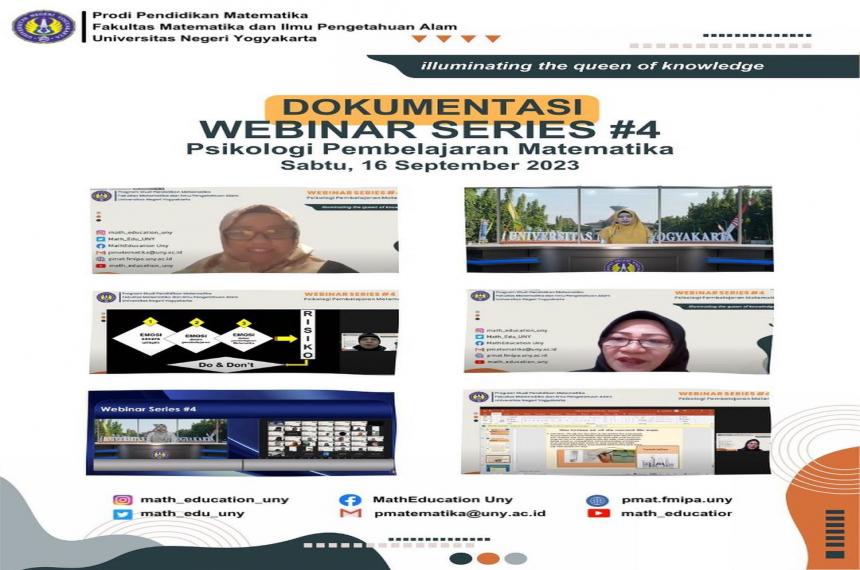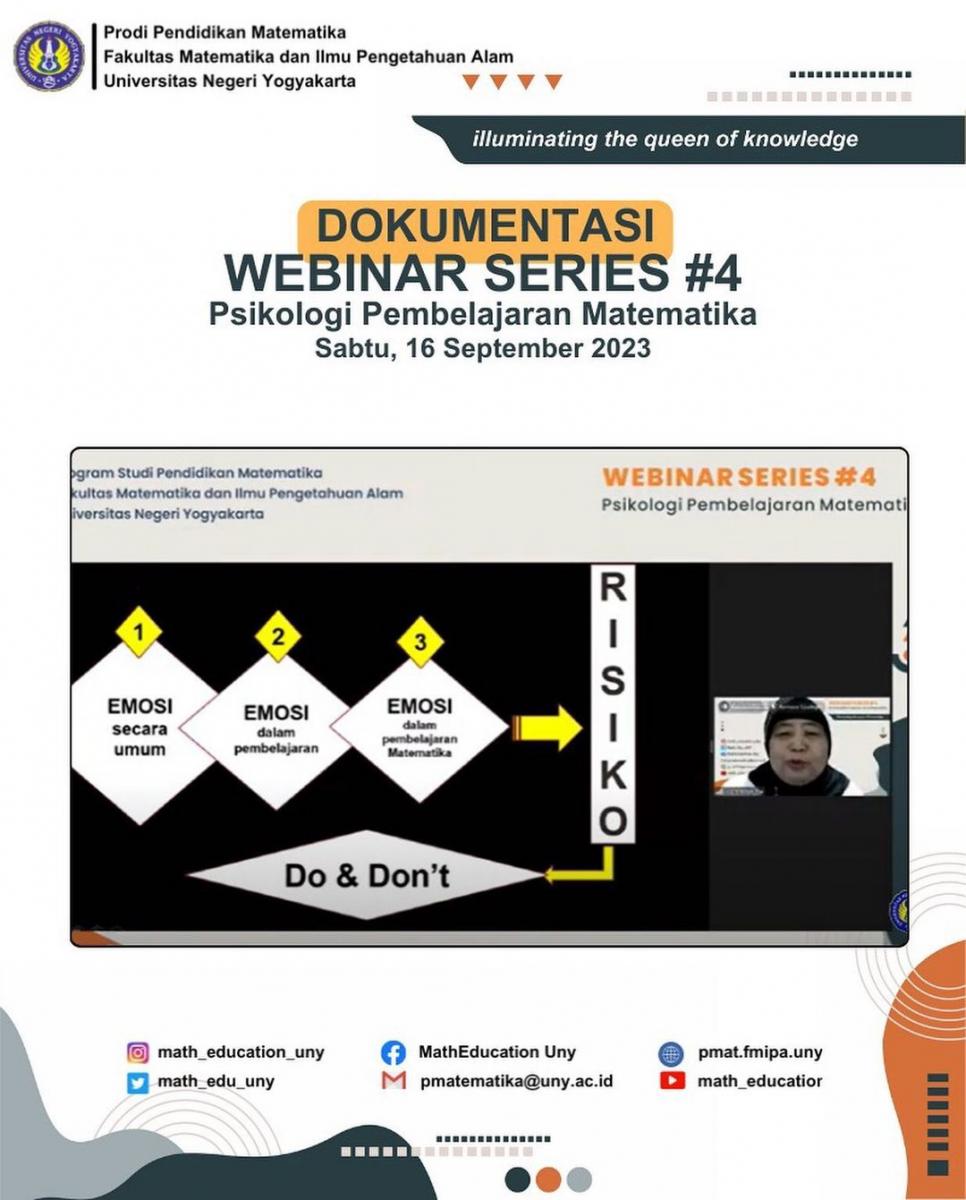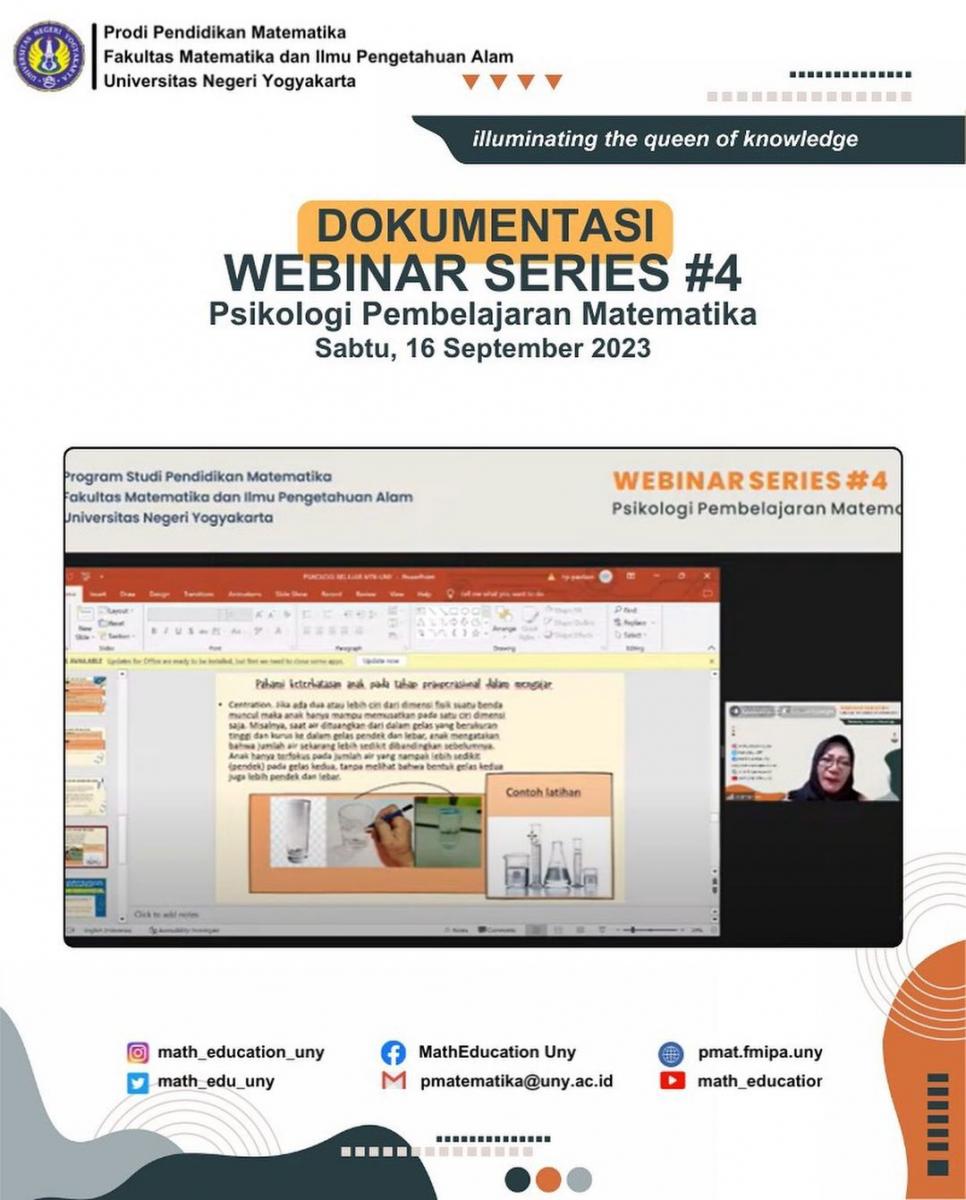WEBINAR 2023 SERIES#4 PSYCHOLOGY OF MATHEMATICS LEARNING

Educational psychology is an important science mastered by educators to help understand student learning behavior and emotions. In order to bridge this, the Mathematics Education Study Program of Yogyakarta State University (UNY) held a webinar series #4 2023.
The webinar event was opened to the public, especially students and mathematics teachers on September 16, 2023. There were three speakers at webinar series #4, namely Endah Retnowati, Ph.D., Dr. Djmailah Bondan Widjajanti, M.Si and Dr. Asmar. S.Psi., M.Si., M.Psi. The webinar began with remarks by the study program coordinator of Mathematics Education, Mrs. Endah Retnowati, Ph.D and continued with remarks by the Deputy Dean for Academic and Student Affairs, Prof. Jaslin Ikhsan, M.App.Sc., Ph.D who also opened the webinar series # 4 of Mathematics Education.
The theme of Webinar Series #4 is “Psychology of Mathematics Learning”. The webinar began with a speech by the study program coordinator of Mathematics Education, Endah Retnowati, Ph.D and moderated by Husna Arifah, S.Si., M.Sc, who is a member of the research group. The Psychology Research group team: Mathematics Education, namely Endah Retnowati, S.Pd., M.Ed., Ph.D., Dr. Djamilah Bondan Widjayanti, M.Si., Dra. Endang Listyani, MS., and Husna Arifah, S.Si., M.Sc.

The first speaker discussed how to manage Emotions and Risks in Mathematics Learning delivered by Dr. Djamilah Bondan Widjajanti, M.Si. She conveyed that educators can be an introduction to students' emotions when teaching and learning activities feel happy, increase interest, confidence and achievement in learning mathematics. According to Skemp, emotions affect learners' competence in confidence, frustration, security/comfort and anxiety. He said that teachers and parents can monitor learners against the surrounding environment because the world and one's behavior influence each other.
In connection with the anxiety of students in the learning process, the next material is “Motivating students from the side of self-efficay” by Endah Retnowati, M.Ed., Ph.D. She said that teachers and parents can monitor students against the surrounding environment because the world and one's behavior influence each other. Dynamics in learning mathematics, there are some learners feel difficult and afraid to try so that this position the role of educators as self-efficacy provides encouragement and confidence that he can be able to understand it.
After the explanation of the two materials, the committee invited ice breaking in the form of guessing pictures through the quizizz platform. Participants who get the three highest scores will get attractive door prizes. Then continued the third material, namely Dr. Asmar. S.Psi., M.Si., M.Psi., Psychologist, he is a clinical psychological practitioner, trainer and academician from the Terbuka University tutor. He conveyed that the psychology of learning mathematics involves understanding the psychological aspects that affect students' ability to understand, apply, and solve mathematical problems.

Participants who asked questions were managed by the committee to be submitted to the two speakers, but not all questions could be submitted to the two speakers due to time constraints. (MA)
Copyright © 2026,



